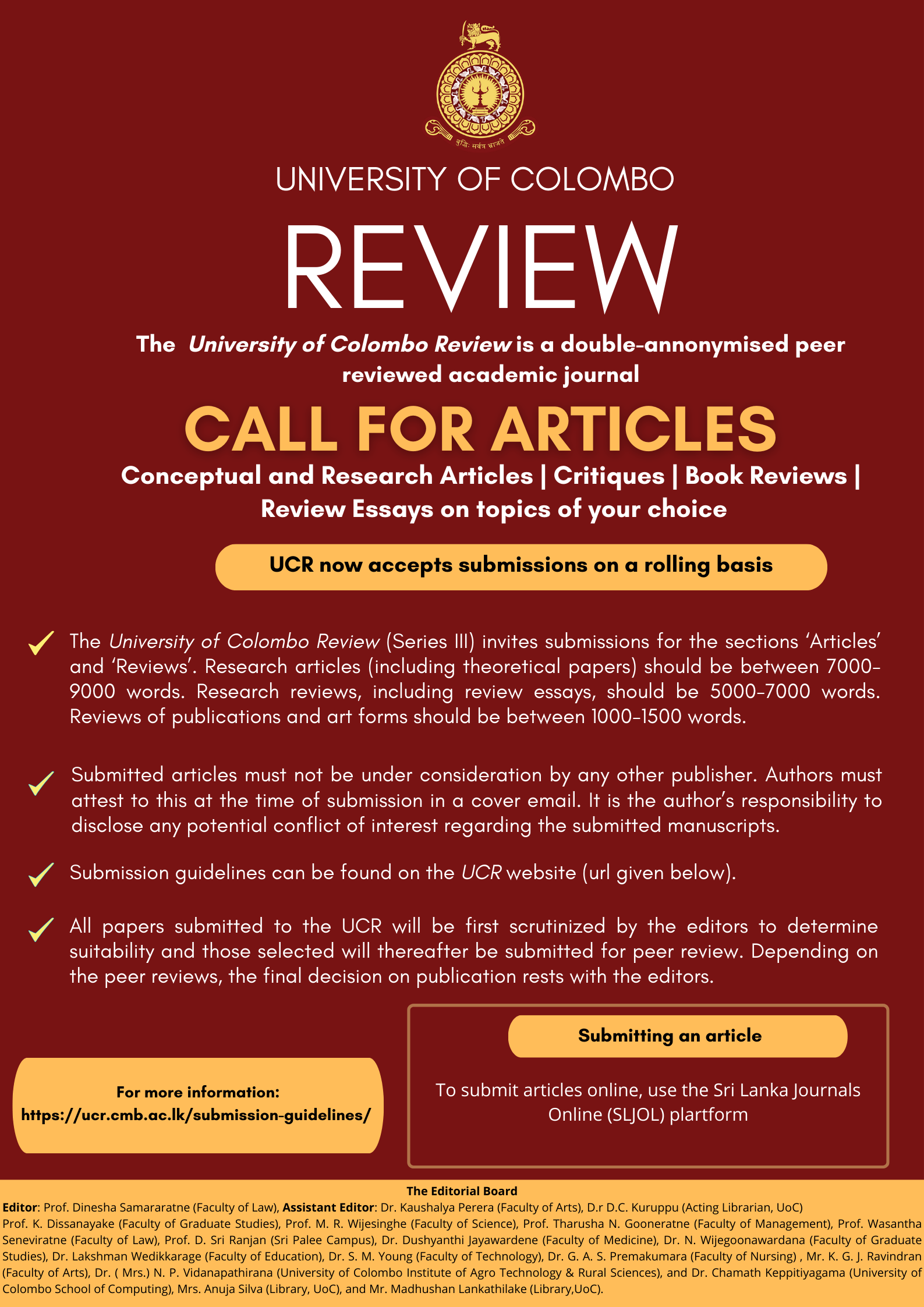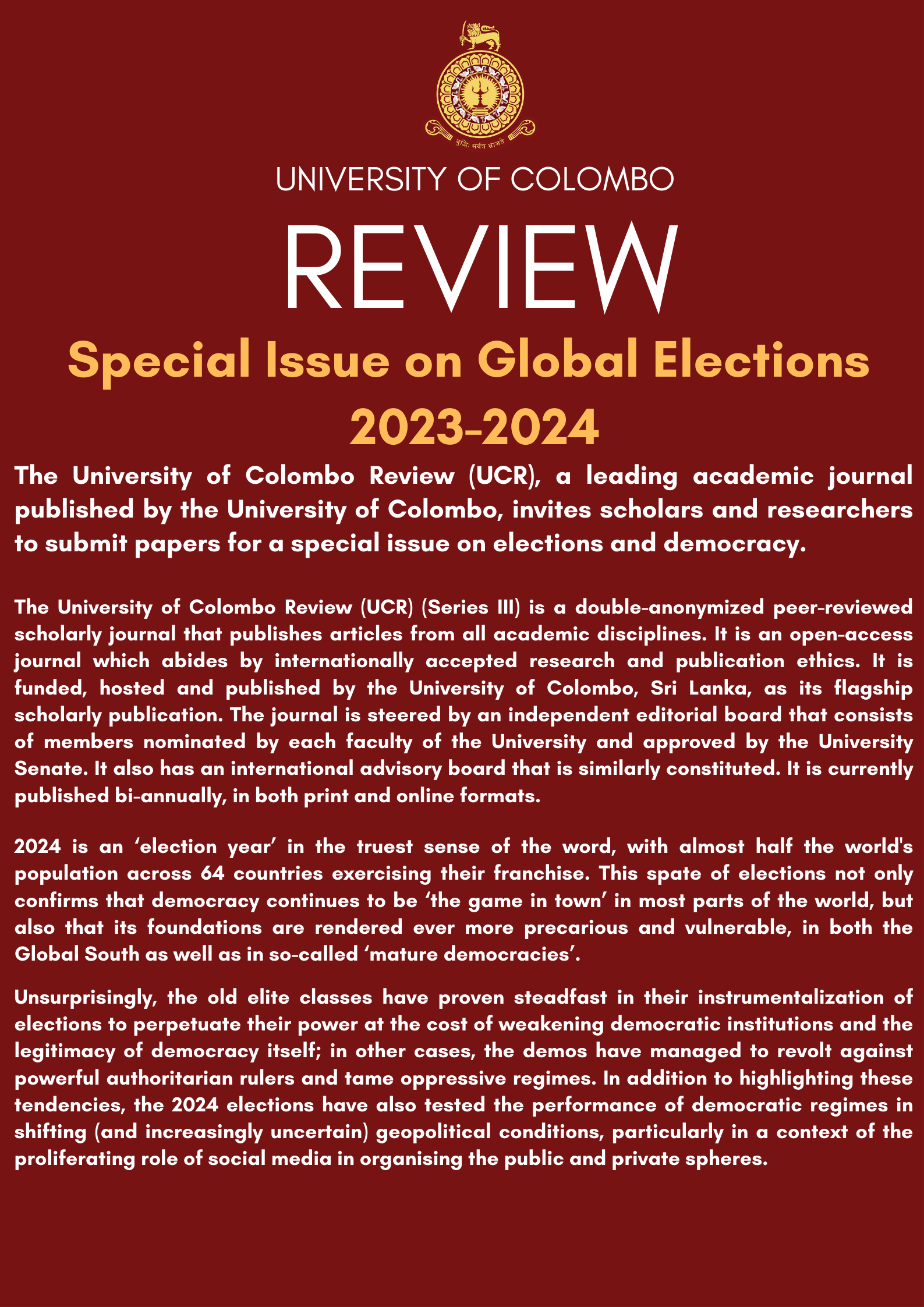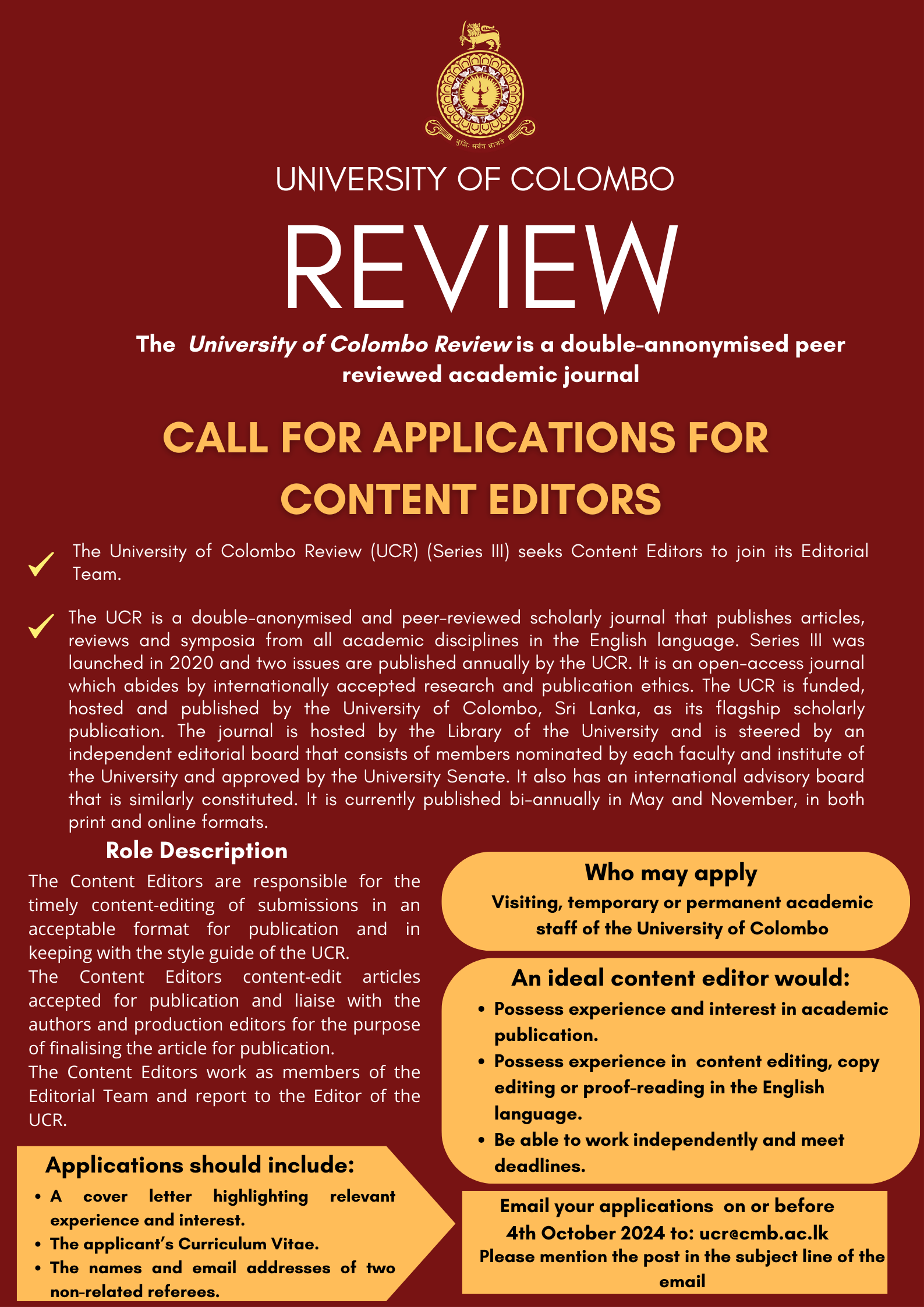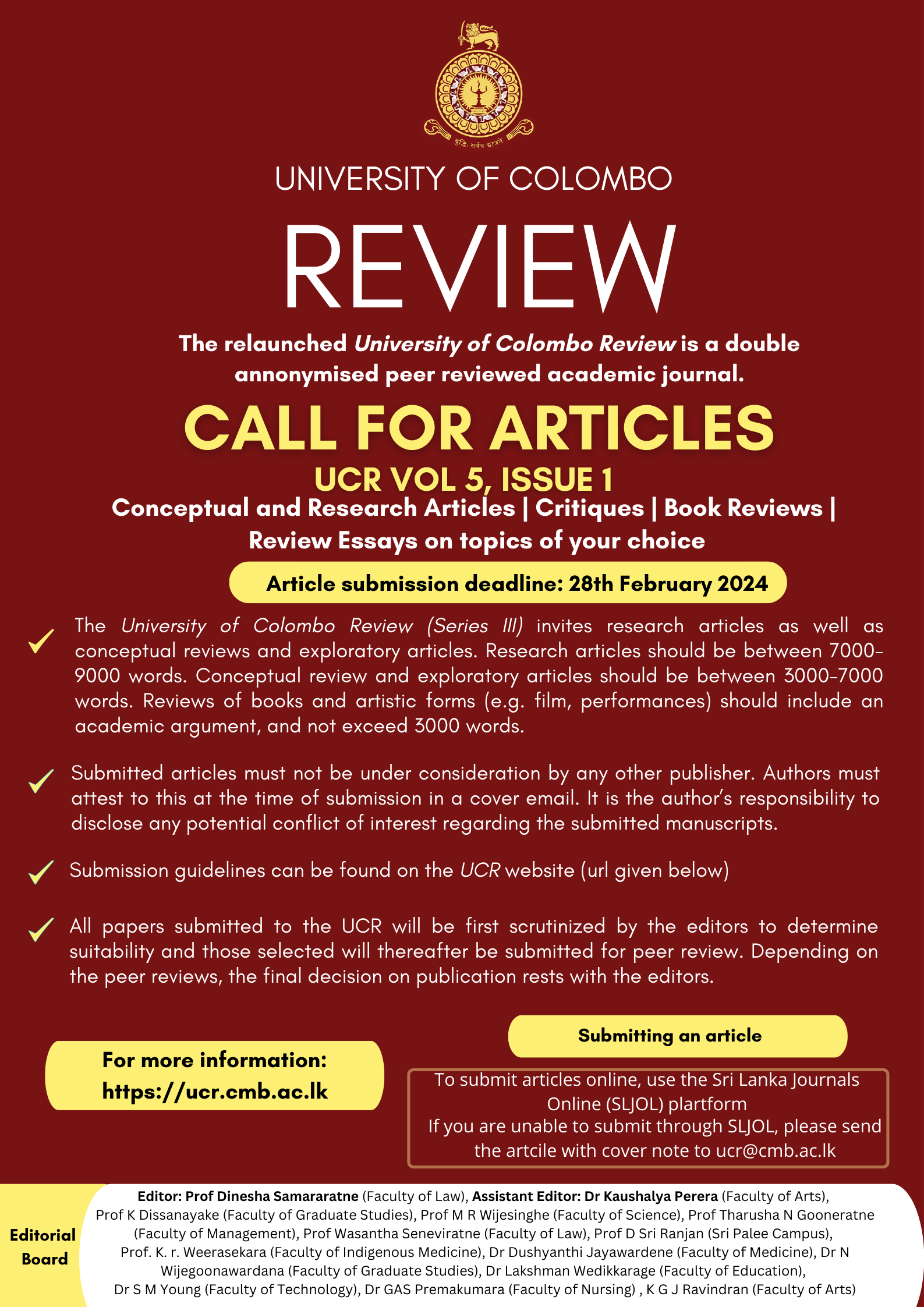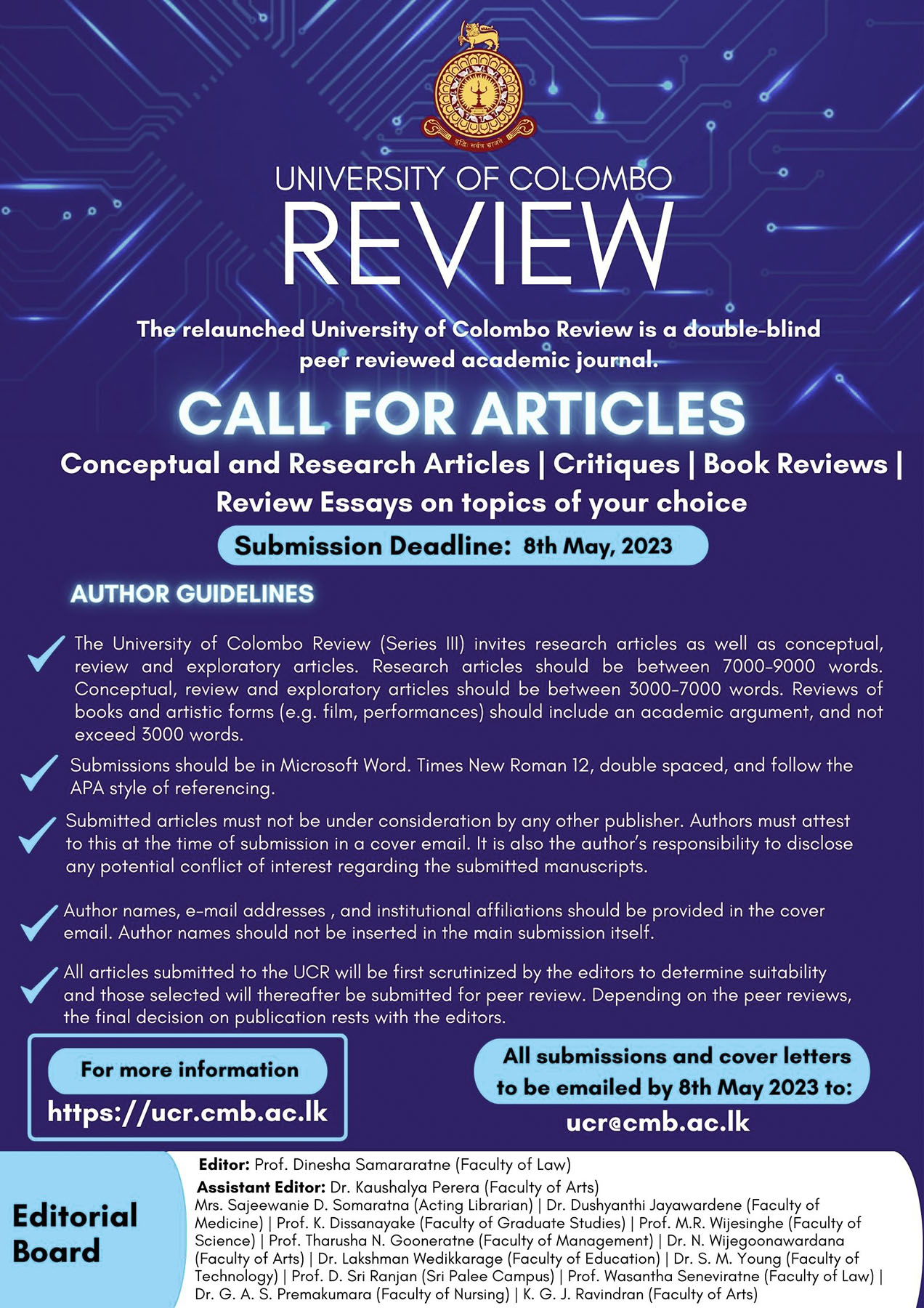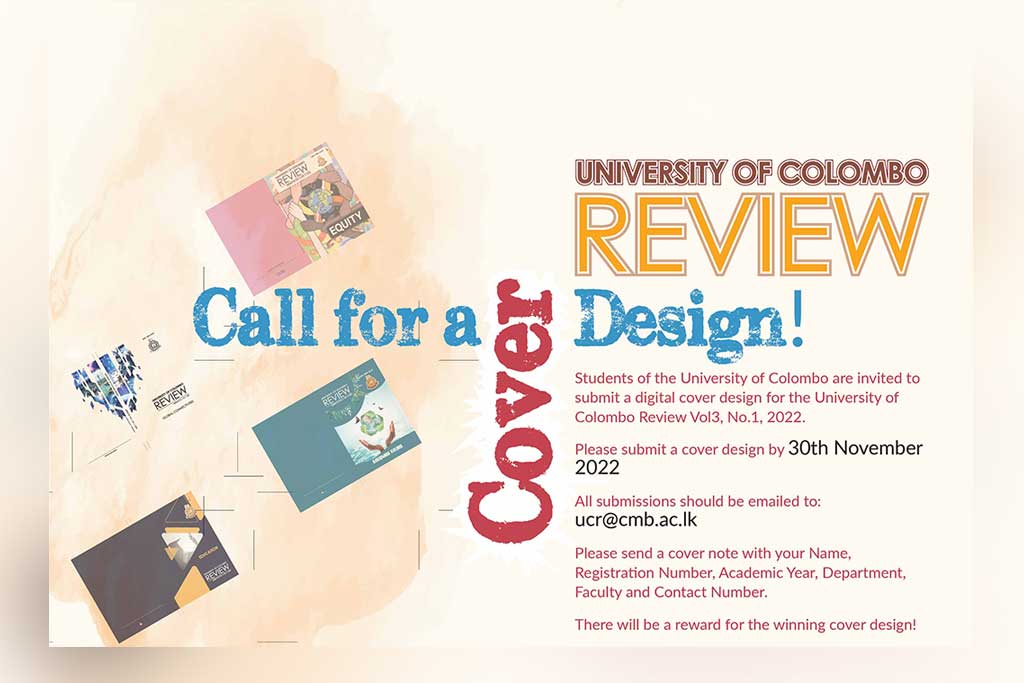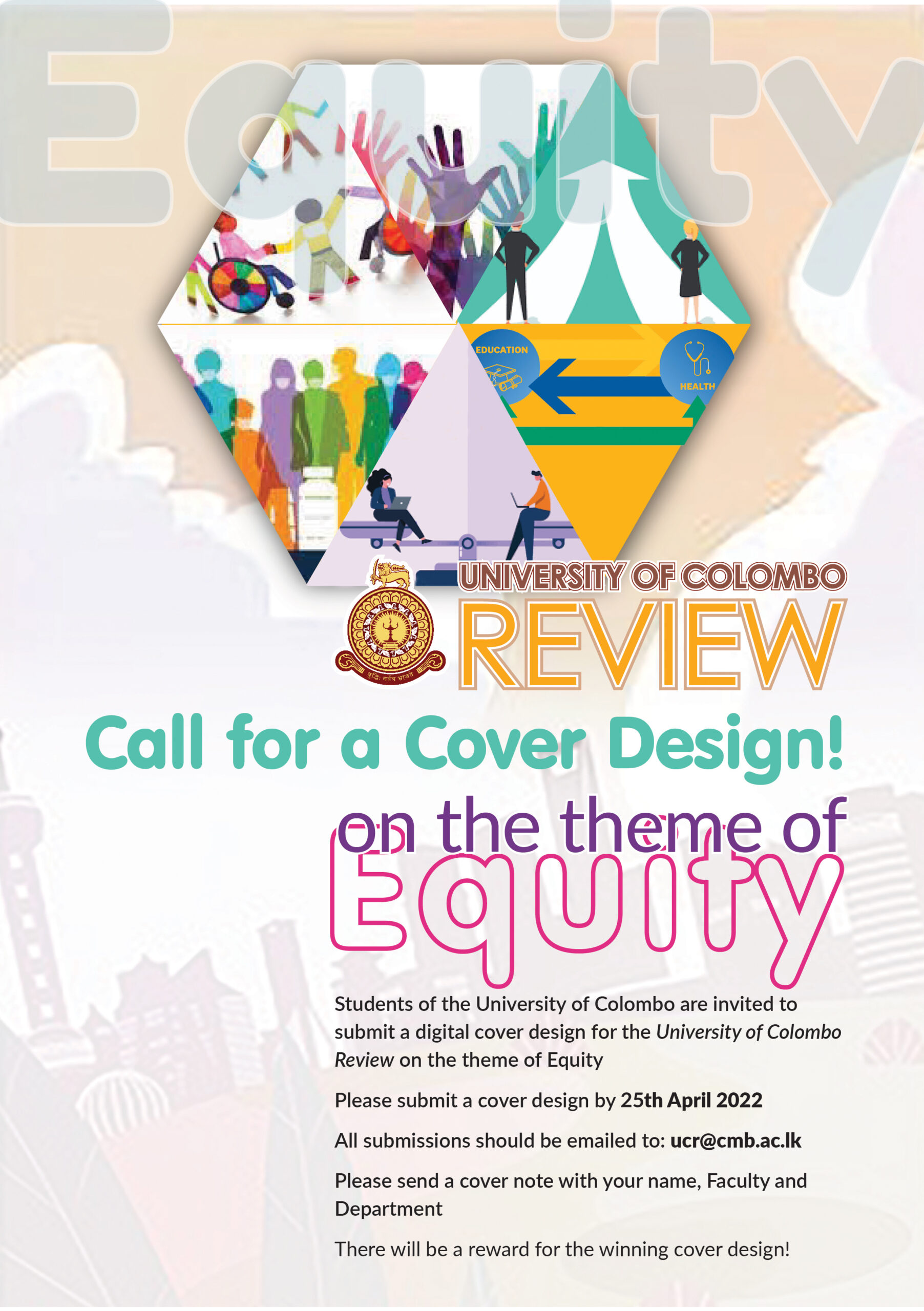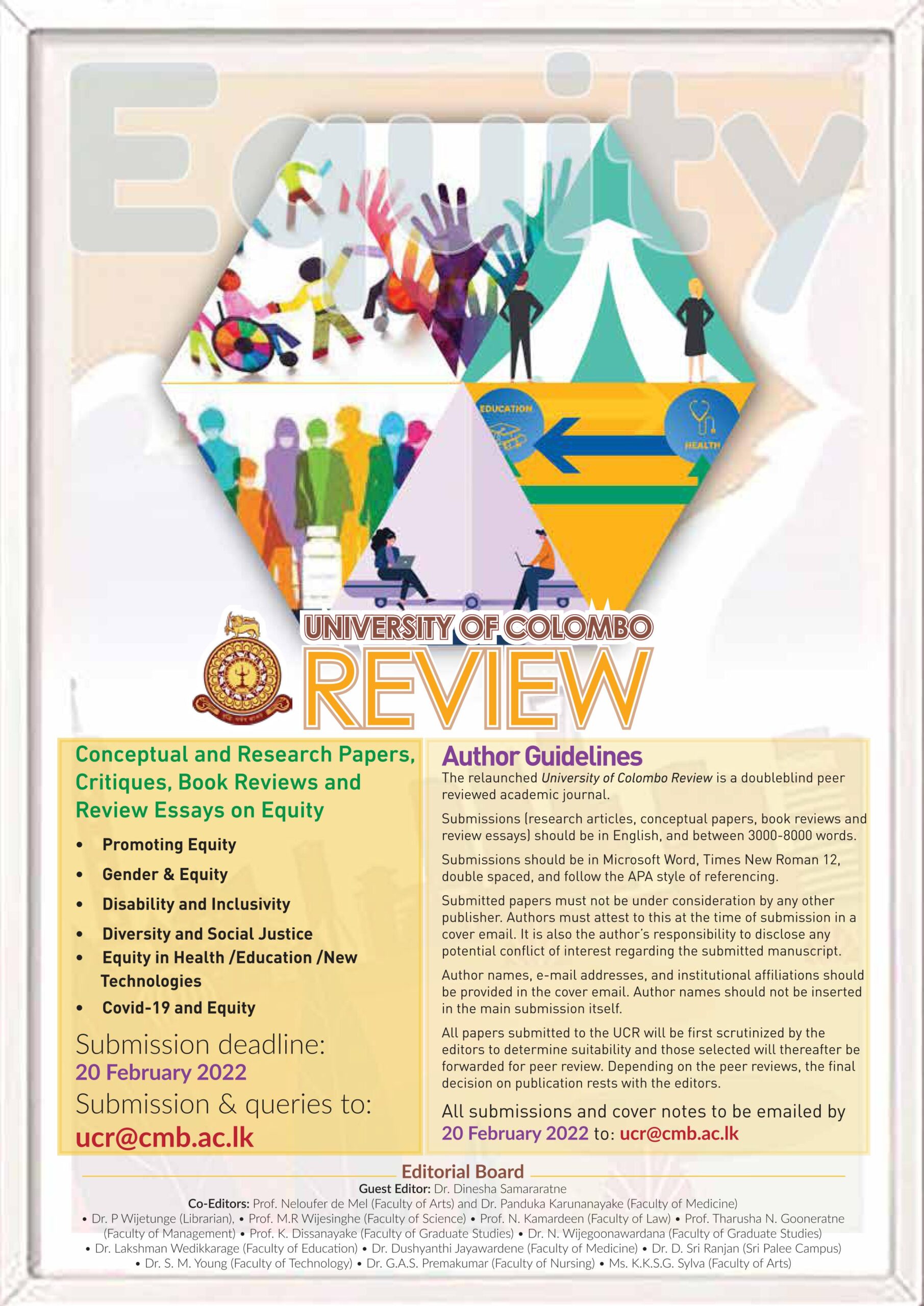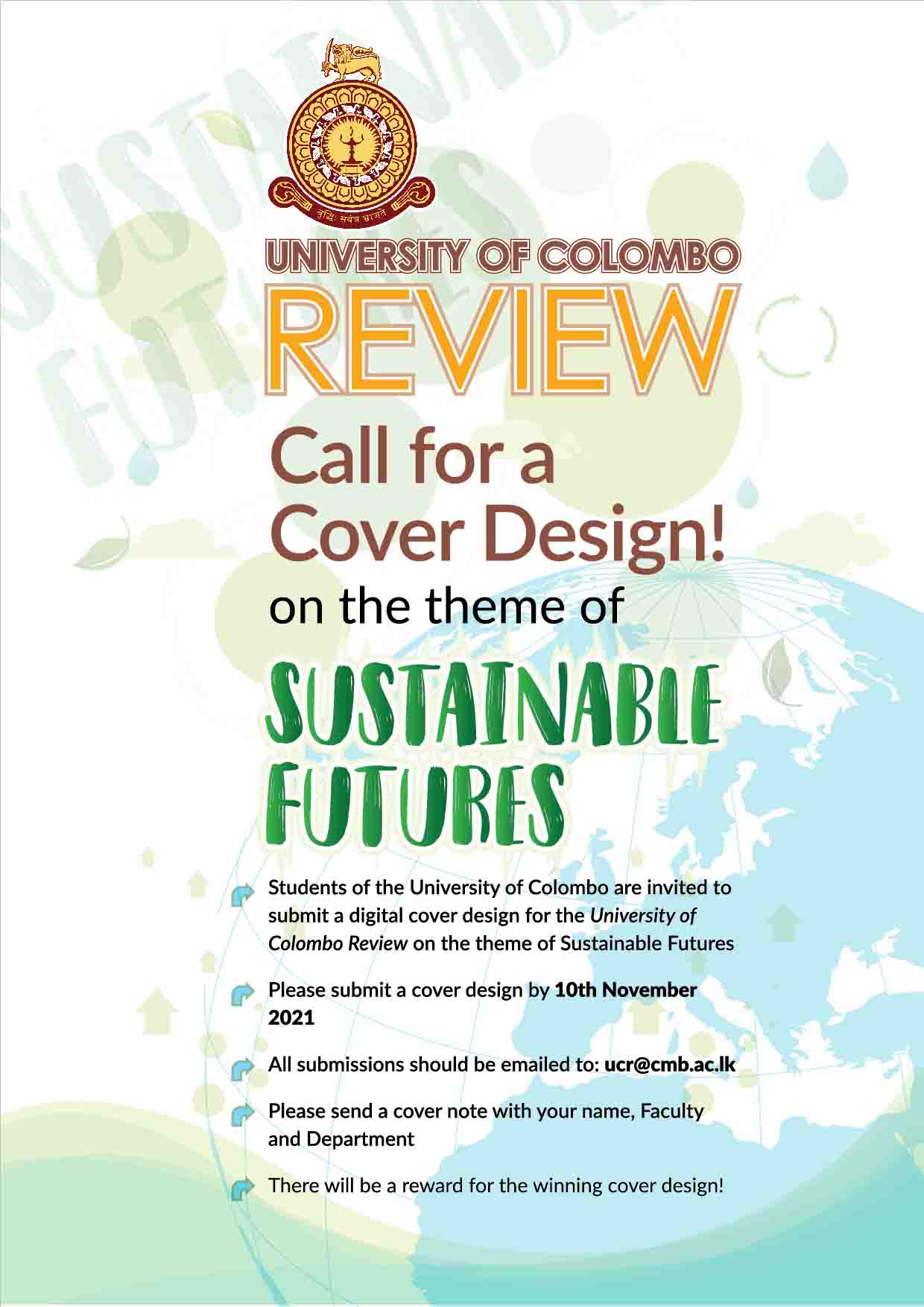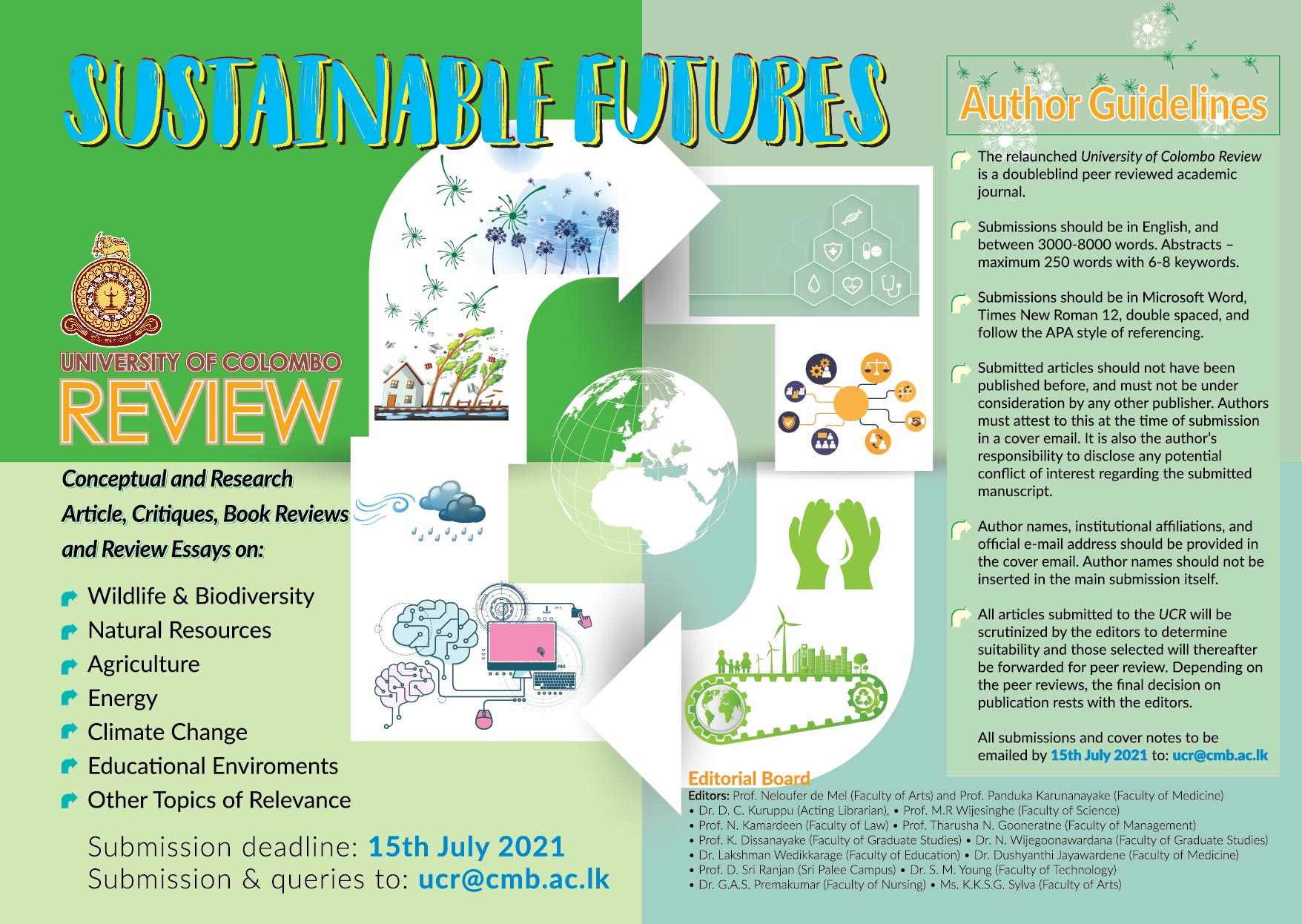UCR News
Special Issue on Global Elections 2023-2024
Call for Papers
Guest Editors: Prof Nirmal Ranjith Dewasiri, Dept of History and Dr Pradeep Pieris, Dept of Political Science, University of Colombo, Sri Lanka
Guest Assistant Editor : Hasini Lecamwasam, Dept of Political Science, University of Peradeniya, Sri Lanka
The University of Colombo Review (UCR) invites scholars and researchers to submit papers for a special issue on elections and democracy.
The University of Colombo Review (UCR) (Series III) is a double-anonymized peer-reviewed scholarly journal that publishes articles from all academic disciplines. It is an open-access journal which abides by internationally accepted research and publication ethics. It is funded, hosted and published by the University of Colombo, Sri Lanka, as its flagship scholarly publication. The journal is steered by an independent editorial board that consists of members nominated by each faculty of the University and approved by the University Senate. It also has an international advisory board that is similarly constituted. It is currently published bi-annually, in both print and online formats.
2024 is an ‘election year’ in the truest sense of the word, with almost half the world’s population across 64 countries exercising their franchise. This spate of elections not only confirms that democracy continues to be ‘the game in town’ in most parts of the world, but also that its foundations are rendered ever more precarious and vulnerable, in both the Global South as well as in so-called ‘mature democracies’.
Unsurprisingly, the old elite classes have proven steadfast in their instrumentalization of elections to perpetuate their power at the cost of weakening democratic institutions and the legitimacy of democracy itself; in other cases, the demos have managed to revolt against powerful authoritarian rulers and tame oppressive regimes. In addition to highlighting these tendencies, the 2024 elections have also tested the performance of democratic regimes in shifting (and increasingly uncertain) geopolitical conditions, particularly in a context of the proliferating role of social media in organising the public and private spheres.
South Asia has also had several elections take place, including and especially the largest democratic exercise of the world, i.e. the Indian general election. Dubbed by some commentators as one where “the BJP lost by winning, and the opposition won by losing”, the Indian general election demonstrates the undercurrents of democratic exercises that may be far more telling than their result itself. In India – as elsewhere – these developments throw into relief the reality that democracy constitutes both a means to express public frustrations, as well as a mirage that continues to undermine the actual addressing of those frustrations themselves.
Examining the recent elections across the world would enrich our understanding of these fascinating paradoxes and anomalies in the practice of democracy as it unfolds in the dialectical struggle between the rule of the few against the rule of many.
The UCR is particularly interested in contributions that address the following themes:
- The Rise of Authoritarianism: how and why authoritarian ideologies and leaders are gaining traction in various countries, their impact on democratic institutions and practices, and their curious cohabitation with democratic systems and arrangements.
- Far-Right Politics: the increasing influence of far-right movements and parties, their electoral successes, and their implications for national and international political landscapes, particularly in terms of their propensity to insist on doing away with democratic institutions altogether.
- Geopolitics and National Elections: the intersection of global geopolitical tensions and national electoral processes, and how international relations influence domestic political outcomes.
- Social Media’s Role in Elections: the influence of social media platforms on electoral campaigns, voter behaviour, misinformation, and democratic engagement.
- Gen-Z and Electoral Politics: political engagement, voting patterns, and influence of Generation Z in contemporary electoral politics.
- Diaspora Involvement in National Elections: the impact of diaspora communities on national elections, including voting trends, political influence, and the role of transnational connections.
The UCR encourages submissions that employ a range of methodologies and theoretical perspectives to provide a comprehensive understanding of these critical issues. The UCR invites, in particular, submissions that are multi, inter or trans disciplinary. These approaches may be developed particularly through submissions authored collaboratively by scholars from different disciplines. Comparative analyses, case studies, and theoretical reflections are all welcome.
Submission Guidelines:
- Articles: Articles should be between 7,000 and 9,000 words, excluding references.
- Reviews: Reviews of publications and art forms should be between 1000-1500 words, excluding the references.
- Format: Submissions should follow the UCR’s formatting guidelines, which can be found on our website.
- Deadline: Please submit your papers by January 15, 2025.
- Submission Portal: Manuscripts should be submitted through our online submission system, accessible via the UCR website.
We look forward to receiving innovative and thought-provoking analyses or reviews that will contribute to deepening our understanding of contemporary electoral challenges and transformations.
For queries, please contact ucr@cmb.ac.lk
Last Updated on October 10, 2024 by Web Coordinator
